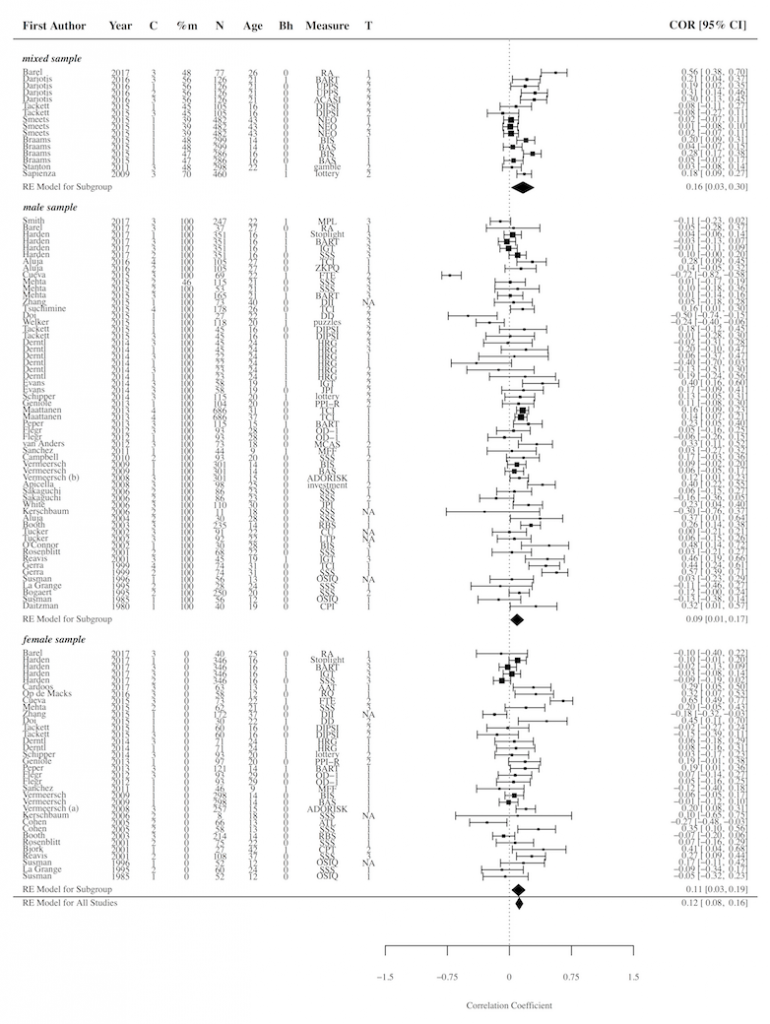
Jenny Kurath (former student and research assistant in our group) and I have a new paper out on the links between endogenous hormonal levels (testosterone, estradiol, cortisol) and risk preference (broadly defined, and including self-report and behavioural measures of risk taking, and related constructs, such as impulsivty or sensation seeking). In a nutshell, the literature suggests small positive links between testosterone and estradiol (around .1) but not cortisol (average estimate pretty much zero). We did not find evidence for differences between types of measures (self-report, behaviour) or constructs (e.g., risk taking, sensation seeking). Lots of heterogeneity across studies (particularly for cortisol) but no evidence of publication bias (e.g., p-hacking) for any of the effects. According to these effect sizes, around 90% or more of studies on testosterone and estradiol have been underpowered… It’s very nice to see this work partly stemming from Jenny’s BSc thesis published and we hope it is informative for future work examining the biological basis of risk preference!
Individual differences in risk taking and endogeneous levels of testosterone, estradiol, and cortisol: A systematic literature search and three independent meta-analyses
Hormonal levels have been hypothesized to serve as proximal biological mechanisms underlying individual differences in risk taking. We conducted a systematic literature search and independent meta-analyses to assess the link between endogenous testosterone, estradiol, and cortisol levels and risk-taking related constructs (i.e., risk-taking propensity, impulsivity, sensation seeking, novelty seeking). We found small correlations between risk-taking constructs and testosterone (r = 0.12, 95% CI = 0.08, 0.16, 108 effect sizes, k = 49, N = 9112) as well as estradiol (r = 0.10, 95% CI = 0.02, 0.18, 48 effect sizes, k = 17, N = 2900), but not cortisol (r = -0.01, 95% CI = -0.11, 0.09, 60 effect sizes, k = 27, N = 3880). Overall, these results suggest a biological foundation for individual differences in risk taking. We point out some limitations of past studies and make recommendations for future work investigating the hormonal basis of individual differences in risk taking.
Be the first to leave a comment. Don’t be shy.